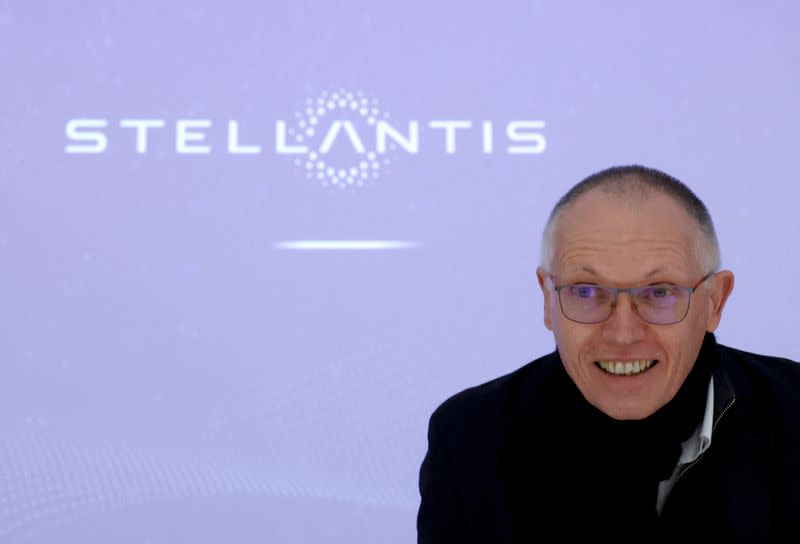Stellantis CEO defends EU's 2035 ban on fossil-fuel cars

BERLIN (Reuters) - Franco-Italian automaker Stellantis wants to stick to the European Union's goal to effectively ban the sale of new petrol and diesel cars from 2035, CEO Carlos Tavares said in an interview with German media outlet Welt published Saturday.
Tavares's comments come as politicians and people in the auto industry had argued that a possible shift to the right in the European Parliament after the elections in June could lead to a revision or withdrawal of the ban.
"I am in no way against us banning combustion engines in 2035. I support this requirement," Tavares said.
"But you have to be pragmatic to make the transition," he added. "Otherwise, dogmatism will fail in the face of reality and this transition will be very costly for the taxpayer and not necessarily efficient for the planet."
The landmark rules, approved by EU lawmakers in February 2023, require that by 2035, carmakers must achieve a 100% cut in CO2 emissions from new cars sold, which would make it impossible to sell new fossil fuel-powered vehicles in the 27-country bloc.
Subsidies, however, remain necessary to successfully complete this goal as the technology remains too expensive, Tavares said.
(Writing by Nette Nöstlinger; Editing by Miranda Murray)